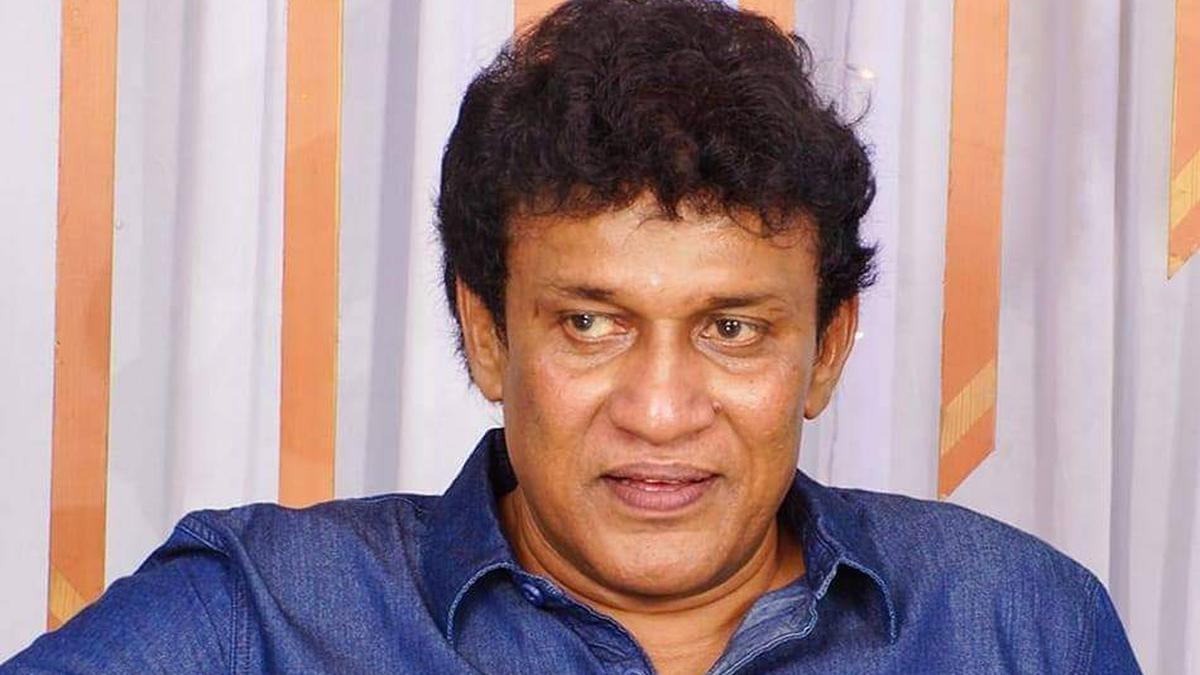-By A Special Correspondent

(Lanka-e-News -13.Jan.2025, 11.00 PM) In the ever-spiraling sitcom of Sri Lankan politics, a familiar face has reappeared on the stage, questioning the shadowy figures of geopolitics. Mano Ganesan, a Colombo-based political phoenix who seems to rise not from electoral ashes but from the benevolence of parliamentary loopholes, has taken the spotlight once again. This time, his plot twist involves calling out the mystery middlemen in Chinese-backed projects, a move that reeks of geopolitical intrigue and… perhaps, selective amnesia.
Mano, a man of many talents—minister, parliamentarian, and now geopolitical investigator—is demanding transparency. His rallying cry? “Who profited from the Chinese projects?” A noble question, perhaps, but one that seems to come with a distinct Indian accent. If there’s anything Sri Lankan politics teaches us, it’s this: when one finger points outward, three fingers (and possibly a thumb) point back at oneself.
Let’s rewind. Mano Ganesan, having lost his parliamentary seat in the Colombo District election, managed to Houdini his way back into the august chambers of Sri Lanka’s Parliament through the magic of the National List. A feat, no doubt, that would make even seasoned magicians nod in approval. Yet, his return hasn’t been without controversy.
Instead of working on winning over the Colombo electorate that gave him the cold shoulder, Mano has taken it upon himself to play Colombo’s geopolitical Sherlock. But is his magnifying glass focused too narrowly on the Chinese ledger while conveniently ignoring the murky depths of Indian-funded ventures?
Mano’s sudden curiosity about Chinese project payouts raises an eyebrow or two, especially when you remember his family's longstanding connections to India. The Ganesan clan, known for their business ties—including a much-joked-about toilet-cleaning legacy—has never shied away from flexing its Indian links.
If Mano is so keen on transparency, shouldn’t he start by revealing the list of middlemen who pocketed payments from Indian-backed projects in Sri Lanka? After all, India’s investment footprint in Sri Lanka is no small matter. From education to medicine, from imports to infrastructure, there’s hardly a sector untouched by Indian financing. Yet, whispers abound of local agents—politicians and businessmen alike—who’ve allegedly greased the wheels to get these projects approved.
Take, for instance, the blacklisted Indian companies that have faced U.S. scrutiny for corrupt practices. How many of those have danced the diplomatic tango in Colombo? Mano’s silence on this front is deafening. Could it be that his allegiance to his Indian “masters” (your words, not ours) runs deeper than his commitment to Sri Lanka?
Sri Lanka’s geopolitical position is precarious, sandwiched between the looming economic dragon of China and the relentless geopolitical elephant of India. It’s a dance on a diplomatic tightrope, and every misstep risks a tumble into chaos.
For Mano to openly call out Chinese projects while ignoring India’s equally questionable dealings is akin to yelling about a leak in one half of the boat while ignoring the gaping hole on the other side. It’s not just bad politics; it’s bad optics.
And now, let’s address the not-so-subtle jab: the reference to Mano’s ancestry and the oft-repeated claim that his forefathers came to Sri Lanka to clean toilets or work on estates. It’s a cheap shot and, frankly, beneath the dignity of geopolitical discourse. Yes, Mano’s lineage traces back to India, but so do the roots of many Sri Lankans. It’s what makes Sri Lanka the rich, diverse tapestry it is today.
However, if Mano continues to play the role of India’s unofficial spokesperson, he risks reinforcing the perception that his loyalties lie across the Palk Strait rather than with the people of Sri Lanka.
Mano Ganesan seems to be a man caught between two worlds. On one side, his Indian heritage and connections pull him towards New Delhi’s orbit. On the other, his political career in Sri Lanka demands a staunchly local stance. But geopolitics is no place for divided loyalties. Mano must decide: is he a Sri Lankan parliamentarian or an Indian envoy in disguise?
If he chooses the latter, there’s always the option of resigning his seat and relocating to India, where his talents for investigating middlemen could be put to good use. But if he’s serious about serving Sri Lanka, he needs to start acting like it. And that means taking a hard look not just at China but also at India.
Mano’s latest outburst about Chinese-funded middlemen may have been intended as a brave call for transparency. Instead, it has come across as a poorly disguised attempt to curry favor with India while undermining Sri Lanka’s delicate relationship with China.
If Mano truly wants to champion transparency, he should start by cleaning his own backyard. Publish the list of middlemen involved in Indian projects. Name the politicians and agents who have profited from Indian largesse. Only then can he claim the moral high ground.
Until then, Mano’s antics will remain a source of comedic relief in Sri Lanka’s political theater—a tale of one man, one mouth, and one geopolitical mess too many.
---------------------------
by (2025-01-13 18:22:40)
Leave a Reply